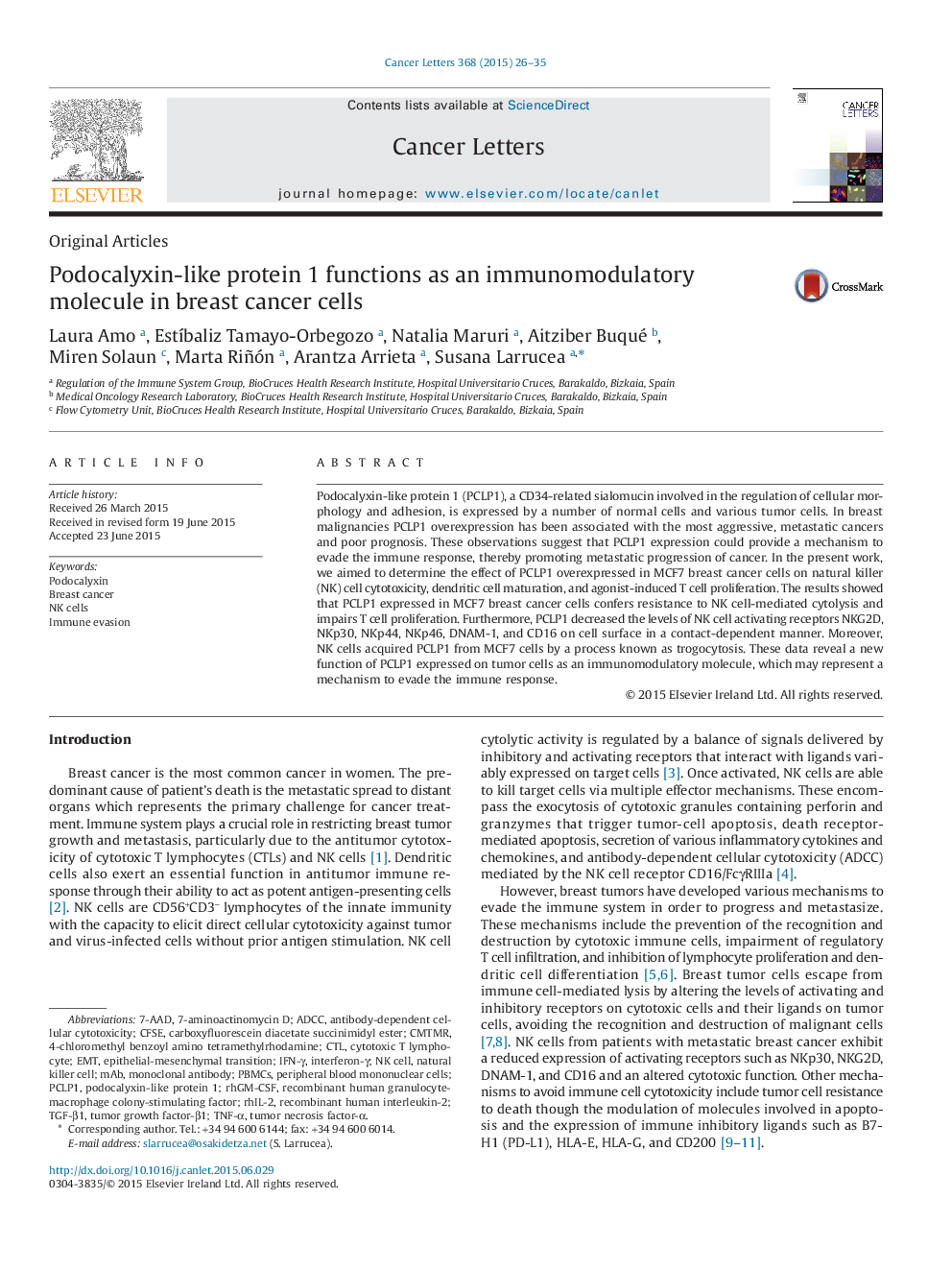| Article ID | Journal | Published Year | Pages | File Type |
|---|---|---|---|---|
| 2112374 | Cancer Letters | 2015 | 10 Pages |
•PCLP1 increases tumor cell resistance to NK cell-mediated lysis.•PCLP1 expressed on breast cancer cells decreases the levels of NK cell activating receptors.•PCLP1 localizes to the immunological synapse and is acquired by NK cells from tumor cells.•PCLP1 expressed on breast cancer cells impairs T cell proliferation.
Podocalyxin-like protein 1 (PCLP1), a CD34-related sialomucin involved in the regulation of cellular morphology and adhesion, is expressed by a number of normal cells and various tumor cells. In breast malignancies PCLP1 overexpression has been associated with the most aggressive, metastatic cancers and poor prognosis. These observations suggest that PCLP1 expression could provide a mechanism to evade the immune response, thereby promoting metastatic progression of cancer. In the present work, we aimed to determine the effect of PCLP1 overexpressed in MCF7 breast cancer cells on natural killer (NK) cell cytotoxicity, dendritic cell maturation, and agonist-induced T cell proliferation. The results showed that PCLP1 expressed in MCF7 breast cancer cells confers resistance to NK cell-mediated cytolysis and impairs T cell proliferation. Furthermore, PCLP1 decreased the levels of NK cell activating receptors NKG2D, NKp30, NKp44, NKp46, DNAM-1, and CD16 on cell surface in a contact-dependent manner. Moreover, NK cells acquired PCLP1 from MCF7 cells by a process known as trogocytosis. These data reveal a new function of PCLP1 expressed on tumor cells as an immunomodulatory molecule, which may represent a mechanism to evade the immune response.
